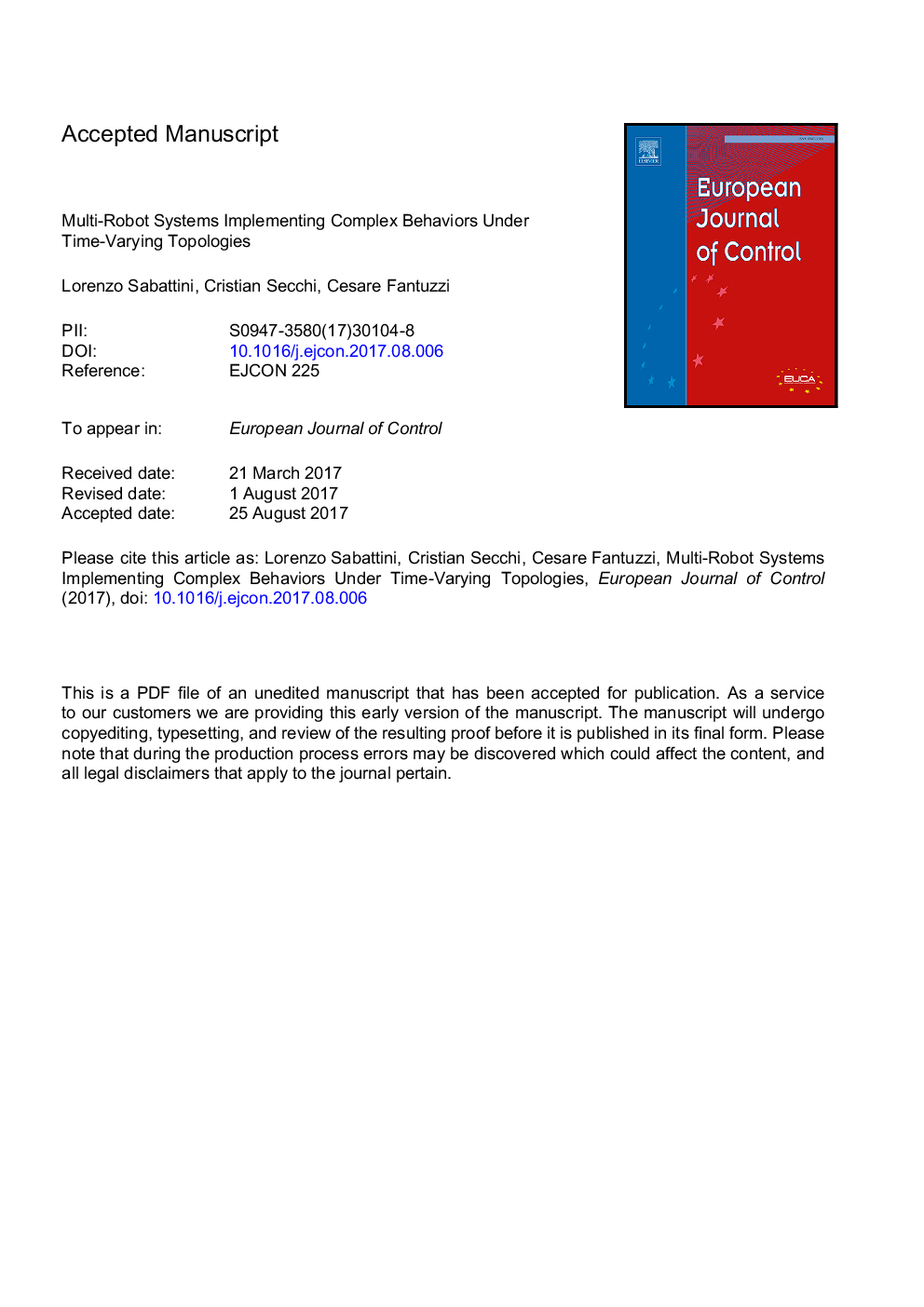| Article ID | Journal | Published Year | Pages | File Type |
|---|---|---|---|---|
| 7113779 | European Journal of Control | 2017 | 26 Pages |
Abstract
In this paper we address the problem of obtaining complex dynamic behaviors in multi-robot systems. In particular, those complex behaviors are modeled in terms of cooperative tracking of periodic setpoint trajectories. The proposed solution considers a heterogeneous group of robots: a few independent robots are used as a control input for the system, with the aim of controlling the position of the remaining robots, namely the dependent ones. The proposed control strategy explicitly considers changes in the communication topology among the robots, that lead to the definition of a switched system. In particular, these changes happen as the system evolves, since robots are equipped with finite range communication devices. A methodology is introduced for defining the system parameters in order to guarantee asymptotic stability of the switched system, thus guaranteeing the desired tracking performance, assuming that independent robots are able to measure or estimate the global state of the multi-robot system.
Related Topics
Physical Sciences and Engineering
Engineering
Control and Systems Engineering
Authors
Lorenzo Sabattini, Cristian Secchi, Cesare Fantuzzi,
